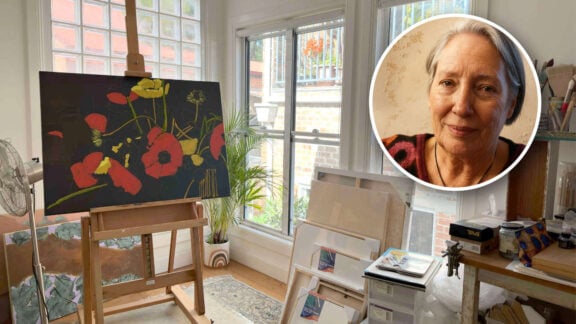A visit to the dentist by the 70-year-old writer Daniel Klein is the starting point for his latest book Travels with Epicurus: A journey to a Greek island in search of an Authentic Old Age.
When Klein faces the dilemma of whether to have a denture plate or implants in order to look more youthful, as is the trend now-days, and also to enable him to chew solid food – that is, a time-consuming, expensive and painful procedure – or whether to try and enjoy as much as he can what is left of his life, he weighs up the pros and cons and thinks long and hard. He asks himself; (i) whether it is a superficial, vainglorious and self-deceptive attempt to try and prolong youth and delay old age and the eventful coming of decay and death; (ii) whether it is an absolutely justifiable and natural human reaction to the forthcoming physical and mental breakdown, hardship and inevitable end; (iii) whether we should take it stoically and surrender without a fight to something which is at all events unavoidable; and (iv) whether there is a way to lead a fulfilled and contented life as an old person.
To answer all the above questions, philosopher Daniel Klein embarks on a journey of personal quest to the Greek island of Hydra, which he had first visited as a 20-year-old rebel in the sixties. The primary reason for the visit is his strong belief that since antiquity, Greek culture and ideas hold the key to the secrets of how to conduct a meaningful, fulfilled and graceful life, especially when the “lived time” of old age is concerned. A major guide to his venture is his beloved ancient Greek philosopher Epicurus, together with some other great ancient and modern thinkers (Socrates, Plato, Aristotle, Seneca, Montaigne, Sartre, Erikson etc), as well as some of his friends and acquaintances on Hydra, the latter leading a simple, healthy, tranquil and meditative life, far from the “noise” of modern civilization.
Travels with Epicurus is essentially a popularized version of philosophy, similar to that by the Norwegian writer Jostein Gaarder, Sophie’s World. Except that Klein’s book is neither a novel nor a blockbuster nor a philosophical treatise. Conversely, it is a harmonious combination of autobiography, travelogue, self-help book and a practical philosophy manual, all in one package. Most importantly: whereas its main arsenal is the “heavy” artillery of ancient Greek philosophers, as well as great modern thinkers and their views on what is an “authentic” old age, Klein manages to condense and transform with epigrammatic mastery all this “heavy” going food for thought into a digestible and quite entertaining read (a pocket size volume of only 164 pages) which can easily accompany the reader to the beach, the airport or anywhere else. The travel texture of the book, set on the popular Greek island of Hydra, as well as its autobiographical nature with all the consequential elements (playful disposition, humour, jokes, popular sayings etc) contribute to giving the book’s philosophical thoughts a popular flavour, making it thus a comfortable and fascinating text.
However, not everything is perfect in this book. For example, in relation to the burning issue of “suicide and/or euthanasia” of the elderly, even though Klein discusses its thorny aspects comprehensively but discerningly, in the end he leaves the whole matter unanswered. He limits himself to emphasizing, once again, that the elderly should make the best of their remaining time, instead of getting stressed over the inevitable forthcoming ills of old age (ailments, suffering, death), since they are beyond their control, and lose valuable time running around visiting doctors, having tests etc.
The same applies to the issue of “anticipatory depression in old age” that plagues a considerable percentage of the elderly populace. As an answer, Klein projects the thesis by the French existentialist writer and philosopher Albert Camus that, although life is apparently meaningless – let alone old age with all its tribulations – nevertheless “we can transcend life’s inherent absurdity and create meaning through our own decisions and interpretations; that too is an authentic response to what awaits us.”
In the Epilogue, realizing that he does not provide any clear or satisfactory answers to the questions posed, Klein invokes Aristotle, by attempting to justify his stance, as follows: “‘We must not expect more precision than the subject-matter admits.’ And the question, ‘What is the best way to be an old man?’ is far from being a precise one. In fact it’s about as open-ended as they get.” Another clever evasion or the unvarnished truth? I’ll let the reader be the best judge of that…
However, be that as it may, Klein never gives up. To the age-old Shakespearean question whether it is worth “to be or not to be”, Klein – from the tavern of sunbathed Hydra and a glass of retsina in hand, and not from some sick-bed – gives his own version of things. Although, an atheist who does not believe in the deities of mount Olympus or any other deity and indeed a Jew, he participates wholeheartedly in what he calls “the holiness of the ordinary” and the customs and popular celebrations (feasts) of the Greek Orthodox Easter, claiming that all these pagan customs are more lasting and authentic than the actual rituals of the organized religion. He is so moved and excited by this “profane holiday party” that Klein is “absolutely certain that Tasso’s garden is alive with something essentially holy” and concludes by adding: “Indeed at this moment there is nothing more I want from the cosmos than I have right here: ‘to see a World’ in their faces. I stand and raise my glass. ‘It is a great privilege to be here,’ I say. Then smiling, I add, ‘In fact, it is a great privilege simply to be.'” A humble, sincere praise to divine creation (existence) by a self-confessed atheist.
Advertisement









